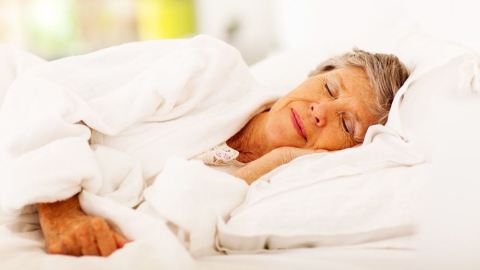Sleeping Longer Hours May be a Stroke Risk

In a long-term study of nearly 10,000 individuals, a team of scientists at Cambridge University found that sleeping more than eight hours per night — especially if that amount results from a recent increase in the number of hours slept — correlates with a higher risk of stroke. The study was recently published in the journal Neurology.
Over nine and a half years, Cambridge researchers participated in the European Prospective Investigation into Cancer (EPIC), measuring the sleep patterns of individuals aged 42 to 81 every four years. They asked the participants in the study how long they slept on average each night and whether they generally slept well.
“Participants who reported persistently long sleep — in other words, they reported sleeping over eight hours when asked at both points of the study — were at double the risk of stroke compared to those with persistently average sleep duration (between six and eight hours a day). This risk was even greater for those whose reported sleep increased from short to long over the four years — their risk was close to four times that of people who maintained an average sleep duration.”
Beyond this study of 10,000 individuals, researchers analyzed data from 11 additional studies related to identifying the association between sleep duration and patterns of stroke risk. Their findings, which included more than 560,000 people, confirmed the results from the EPIC study they originally analyzed.
Yue Leng, a Ph.D. candidate at the University of Cambridge, said that while a correlation between sleep time and stroke risk is clear, the nature of the relationship between sleep and having a stroke is not. Longer hours of sleep may be a symptom, an early marker, or a cause of cardiovascular problems that are known to promote blood clots and hemorrhage in the brain.
Leng said that further research should concentrate on isolating the specific relationship between sleep and stroke risk. In the meantime, medical professionals may want to ask middle-aged and elderly patients if they have experienced recent changes in their sleeping pattern. If so, it may indicate an increased risk of stroke.
Read more at Science Daily.





